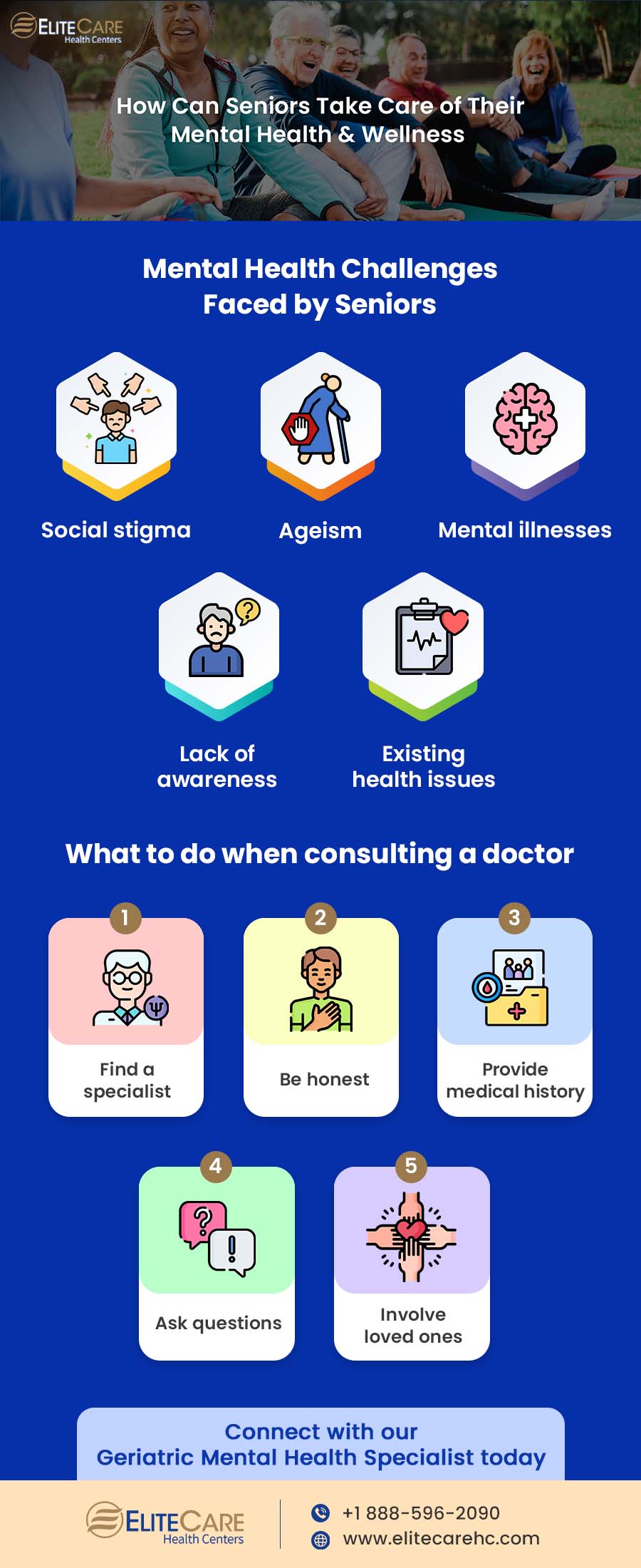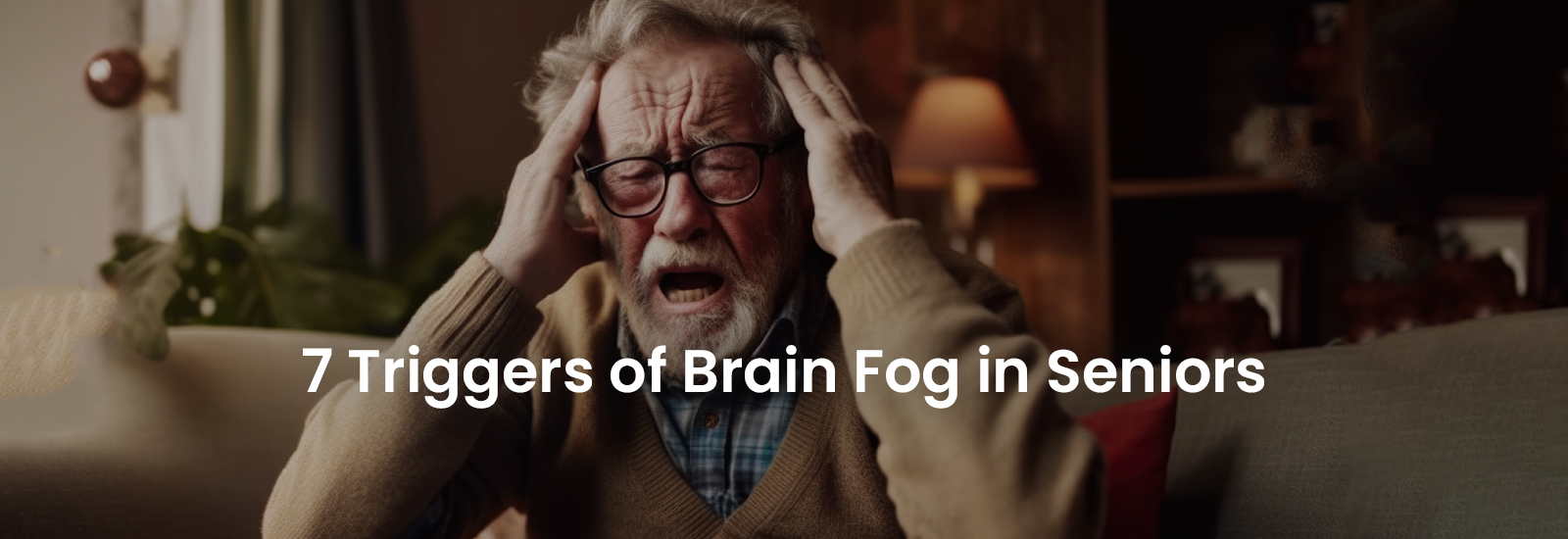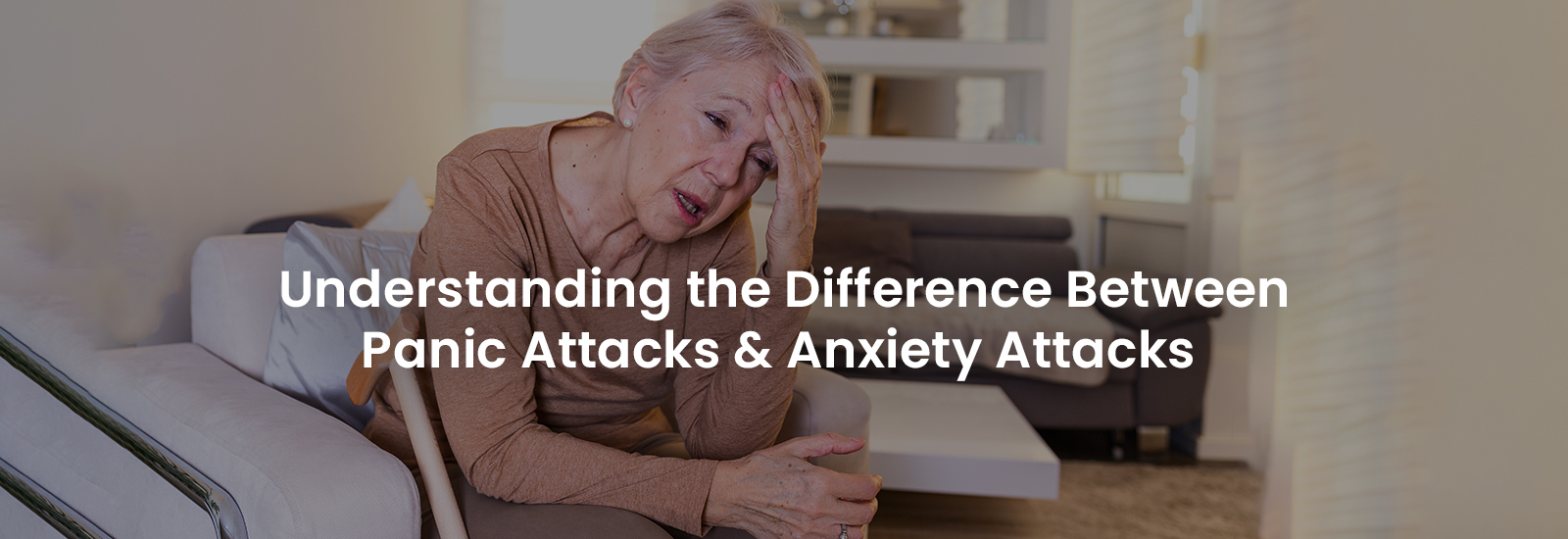
Mental health is an important part of overall well-being. With age, seniors experience physical, emotional, and social challenges that affect their mental health. The interconnection between physical health and mental health is strong. Issues such as chronic pain, disability, and functional limitations can lead to depression, anxiety, and social isolation.
It is necessary to consult a primary care physician about mental health concerns as they can provide a proper diagnosis, develop an appropriate treatment plan, and monitor the senior’s progress.
Seniors may not always recognize the symptoms of mental health conditions, and family members or caregivers may overlook these signs. Moreover, seniors may have co-existing medical conditions that can complicate their mental health treatment. Consulting a doctor specializing in geriatric mental health can ensure that seniors receive proper care and support for their mental health concerns.
Ageing Comes with Its Own Share of Challenges
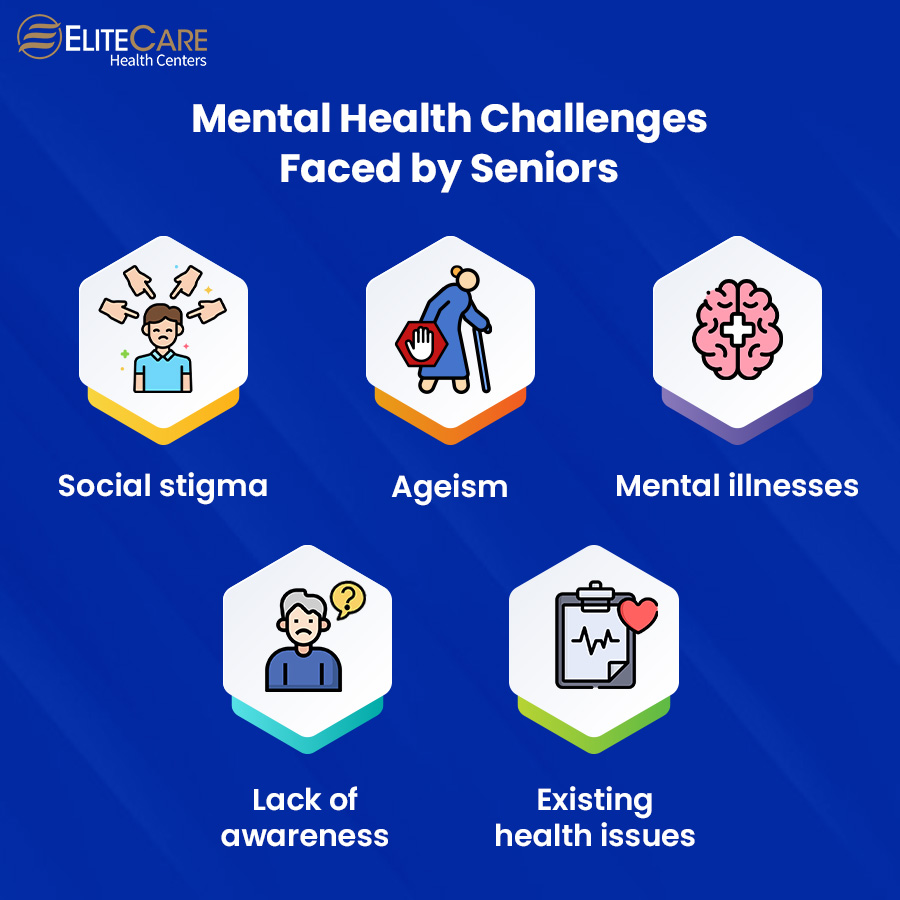
According to World Health Organization, over 20% of adults aged 60 and above suffer from a mental or neurological disorder. When it comes to mental health, seniors face unique challenges. Some of them are as follows:
1. Common Mental Health Concerns
Seniors may experience various mental health issues, including depression, anxiety, bipolar disorder, and dementia. These can result from various life changes, such as losing loved ones, physical limitations, or chronic illness. Additionally, dementia can significantly impact mental health, as it can cause memory loss and changes in behavior. These conditions can be challenging to diagnose and treat, requiring special care from healthcare centers and specialized mental health professionals.
2. Stigma Surrounding Mental Health
This refers to negative attitudes, beliefs, and societal stereotypes about mental illness. Many seniors may have grown up when mental health was not widely discussed, leading to the belief that mental health problems are a personal weakness or moral failing. They may feel embarrassed or ashamed to discuss their mental health issues, which can lead to isolation and further deterioration of their mental health.
3. Barriers to Seeking Help
One of the most common barriers is stigma. Other barriers may include a lack of awareness or understanding about mental health, physical limitations, financial constraints, and transportation issues. Additionally, seniors may hesitate to seek help due to fear of losing independence or being placed in institutional care.
4. Co-existing Medical Conditions
With age, seniors are more likely to develop co-existing medical conditions alongside mental health issues. Some of the most common medical conditions in seniors include chronic pain, cardiovascular disease, diabetes, cancer, and neurological disorders such as Parkinson’s or Alzheimer’s disease.
Besides health conditions, even the substance imbalance in the body, such as hormonal changes or vitamin deficiencies, can also contribute to mental health issues in older adults. These conditions and changes can significantly impact mental health, exacerbating symptoms of depression or anxiety that affect the overall quality of life. Additionally, medications used to treat these conditions may have side effects that can impact mental health. It is essential to consider co-existing medical conditions when addressing mental health concerns in seniors and ensure that treatment plans are tailored to address mental and physical health needs.
5. Ageism
Ageism is a form of discrimination or stereotyping based on an individual’s age, and it can significantly impact mental health outcomes for seniors. In mental health, ageism can be consciously or subconsciously perpetuated by individuals and institutions, including healthcare providers, family members, caregivers, and society as a whole.
For example, senior care service providers may presume that mental health symptoms are a natural result of age-related changes or that seniors are less able to benefit from medical treatment than younger people. These attitudes can prevent seniors from receiving adequate mental health care or cause them to feel marginalized or dismissed when seeking help. Additionally, ageism can be internalized by seniors themselves, leading them to accept negative attitudes about ageing or feel ashamed or embarrassed to seek mental health support.
Things to Keep in Mind While Consulting a Doctor
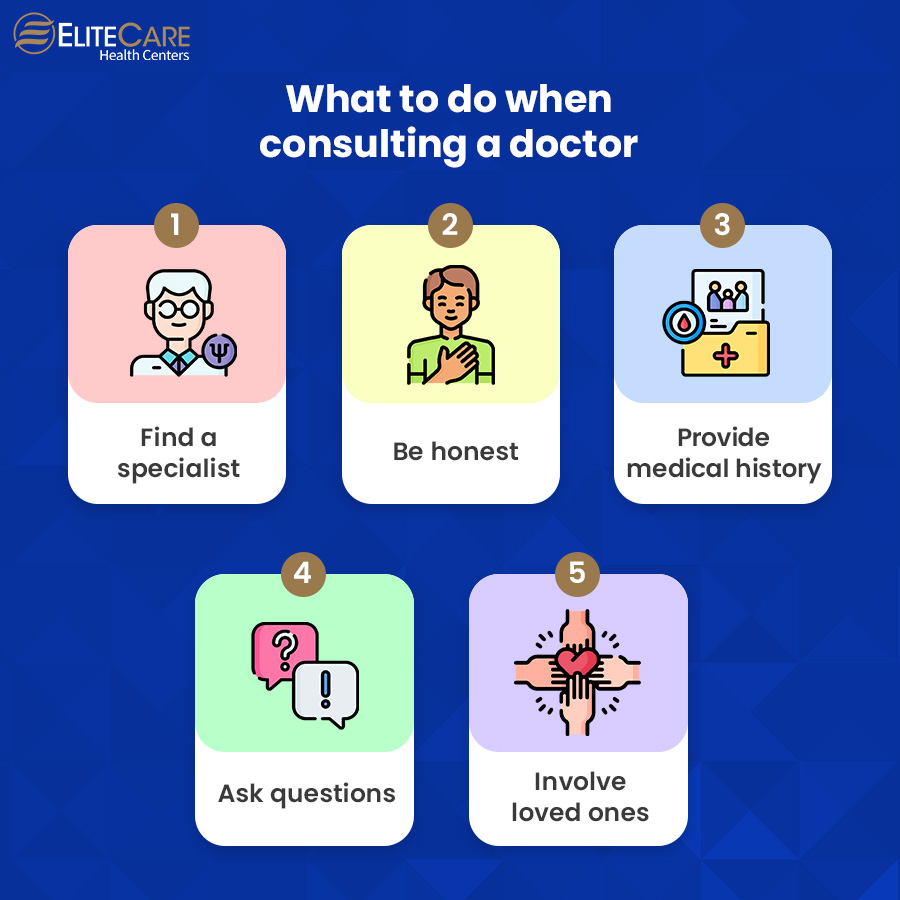
When consulting a doctor about mental health concerns, seniors or their caregivers should keep the following things in mind:
- Find a doctor specialized in geriatric mental health: Seniors should try to find a mental health provider who has experience working with older adults and understands their unique challenges. Geriatric mental health specialists at our health and wellness center can offer specialized assessments, treatments, and resources tailored to the needs of seniors.
- Be honest: It is essential to be honest and open with the doctor about any mental health concerns or symptoms, even if seniors feel embarrassed or uncomfortable about them. Seniors should discuss their symptoms, concerns, and mental health issues affecting their daily lives. This will help the doctor to develop an appropriate treatment plan.
- Medical history: Seniors should provide a complete medical history to their doctor, including any medications they are taking, any co-existing medical conditions they have, and any previous mental health treatments they have received. Such information enables the health and wellness center’s medical team to develop an effective and personalized treatment plan.
- Ask questions: Seniors should ask questions and seek clarification about treatment options. They should discuss the benefits and risks of each treatment and ask their doctor to explain any terms or concepts if not understood by them.
- Involve family and friends: Seniors should involve their family and friends in treatment as they can provide support and assistance throughout the treatment process. They can also help seniors attend appointments and support in follow-up care.
Additional Recommendation for Seniors
In addition to consulting a physician at our health care center, seniors can also take a few steps to maintain their mental health and well-being which are as follows:
- Maintaining a Healthy Lifestyle: Seniors should aim to eat a balanced diet, engage in regular physical activity, and get enough sleep. These lifestyle factors can have a positive impact on mental health.
- Staying Socially Active: Social isolation and loneliness can have a negative impact on mental health. Seniors should spend time with family and friends and try to stay socially active by participating in community activities, joining a senior center or club, or volunteering in their community.
- Seeking Support from Community Resources: Many community resources are available to support seniors’ mental health needs. Seniors can contact local organizations, such as senior centers, faith-based organizations, or support groups, for assistance and guidance.
Summary
A positive mind and attitude are crucial for seniors to maintain overall well-being and quality of life. However, if seniors still face mental challenges, they can connect with our physicians specializing in geriatric mental health at any of our medical clinics in Florida.
It is essential to remember that seeking help for mental health concerns is actually a sign of courage and demonstrates the value a person places on their mental health and well-being.
